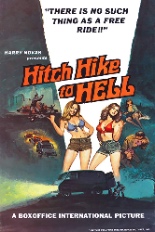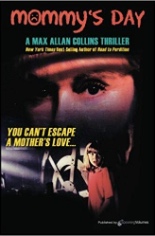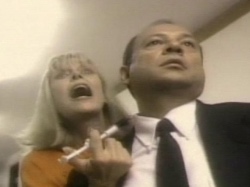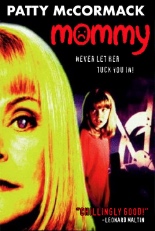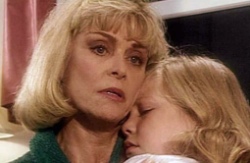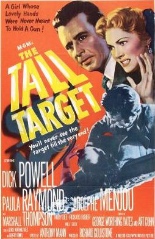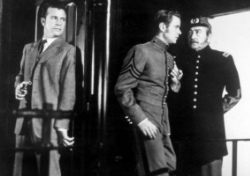
 Rosy-cheeked and hair bobbed, stay-at-home housewife Hunter Conrad (Haley Bennett, 2016’s The Magnificent Seven) has it all, from the rich and handsome husband to the picture-perfect home — everything a woman could want, it seems … except purpose.
Rosy-cheeked and hair bobbed, stay-at-home housewife Hunter Conrad (Haley Bennett, 2016’s The Magnificent Seven) has it all, from the rich and handsome husband to the picture-perfect home — everything a woman could want, it seems … except purpose.
She finds it shortly after her hubs (Austin Stowell, Colossal) gets promoted and she gets pregnant, but it’s neither of these things. It’s a sudden and inexplicable compulsion to swallow random objects — a marble, a pushpin, a AA battery and so on — and, after passing them, to retrieve them, clean them and display them on a tray like precious baubles, as a reminder of what little independence and agency she possesses. As her new secret hobby progresses, the objects grow more threatening in size and shape and potential harm.
 Hunter could be the next-door neighbor to Julianne Moore’s Carol White, the equally disillusioned and oppressed spouse at the center of Todd Haynes’ Safe. Looking every bit like a sexier June Cleaver in living color, the timid Hunter dresses the 21st-century part she is asked to play: the upper-class wife, doting yet subservient. She is an appendage of her self-absorbed Crest Whitestrip of a husband, a trophy for his collection, a commodity to be used and consumed and re-used, ad infinitum. That alone is a disturbing predicament — one amplified once writer/director Carlo Mirabella-Davis introduces the element of body horror.
Hunter could be the next-door neighbor to Julianne Moore’s Carol White, the equally disillusioned and oppressed spouse at the center of Todd Haynes’ Safe. Looking every bit like a sexier June Cleaver in living color, the timid Hunter dresses the 21st-century part she is asked to play: the upper-class wife, doting yet subservient. She is an appendage of her self-absorbed Crest Whitestrip of a husband, a trophy for his collection, a commodity to be used and consumed and re-used, ad infinitum. That alone is a disturbing predicament — one amplified once writer/director Carlo Mirabella-Davis introduces the element of body horror.
Graduating from shorts to his first feature, Mirabella-Davis builds Swallow as a slow-burn story, set in antiseptic suburbia yet grounded in reality. With no flashy camera moves, the film’s frames often resemble photo spreads from Architectural Digest, with his Good Housekeeping protagonist suffering on every page.
Bennett is in the unenviable position of carrying Swallow’s weight entirely on her shoulders; its success or failure depends on her. More than up to the challenge, she gives a beguiling master-class performance. Her breathiness and mannerisms initially reminded me of Michelle Williams, which is not to say Bennett’s tremendous work here is any kind of imitation. All else being equal, if Williams were the star, Swallow would shortlist her for a fifth Oscar nomination; Bennett deserves that same consideration. Her film may not be for every palate — and it’s not — but for those whose tastes are amenable to a little arthouse horror in your psycho thrillers, it hits the spot. —Rod Lott

